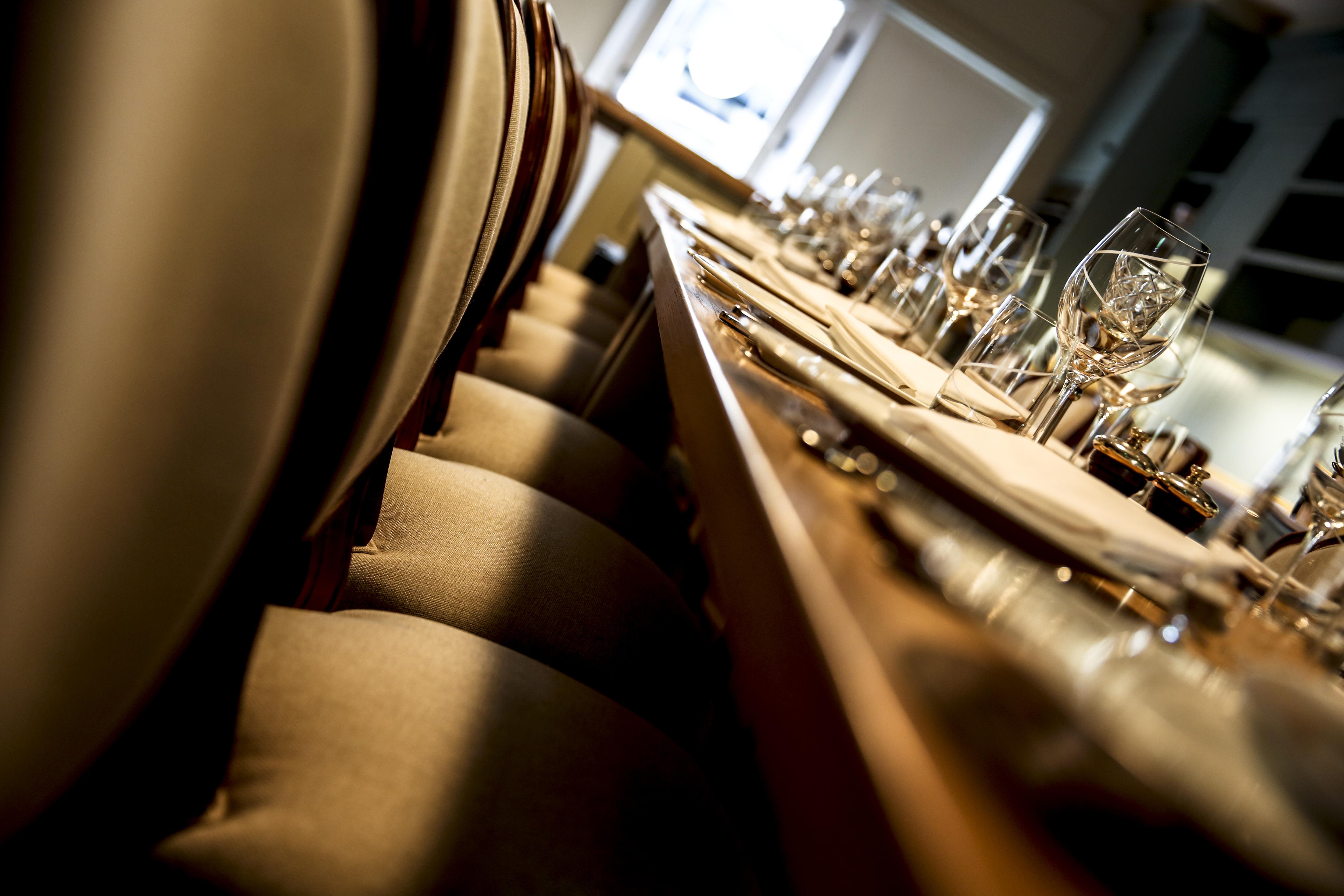
A comparison of Leadership Mastery Illustrated by the star culinary chefs on Chef’s Table by Susan Penn.
I love the artistry of beautiful food, and I love to eat. In fact, when I am visiting a place, I create memories from two things, walking and eating, and preferably walking somewhere to eat.
I also love the rigor and rewards of growing as a leader (myself, others and organizations), which is why I have been inspired by the Netflix series “Chef’s Table,” an Emmy nominated docuseries which combines both, and shows what’s inside the kitchens and minds of international culinary stars who are redefining gourmet food. Each of these amazing and diverse artists illustrates leadership mastery by bringing their full self to cooking and others simultaneously, and by living the traits that make leaders great. What makes this series so exceptional, in my opinion, is that it isn’t just a glance at the master chef’s now that they are successful; it shows their journey, the pitfalls, self-discovery, the obstacles they faced and more, making this both inspiring and relatable.
What does it take to sit at the leadership table?
Is it something inherent, something in our DNA, or is it an approach to everything we do, and a keen ability to stay connected to what matters to us while honing our craft and our abilities in service of others?
The following six ingredients that those of us who aspire to grow and develop as leaders can take from this scenically beautiful and mouthwatering series, that when practiced, create a place at that intrinsically rewarding leadership table.
- EXCEPTIONALISM:
The masters in this series talk about the desire to turn what is local into a gastronomic experience. They are drawn, pulled into the possibilities that exist to make what is available, exceptional. As leaders, how can we look at things from both their inherent qualities but their inherent possibilities? Exceptionalism does not come from seeing a potato as a potato, but looking at things with fresh eyes, ignited by what wants to be created. This may relate to the customer experience, a new service or technology, or how leaders see the possibilities in the individuals on their teams.
“Not a potato, but the best potato of your life.” (Quote from a reviewer/Chef’s table)
2. GROWTH MINDSET:
Witnessing how challenges, criticism, and failure inform but not limit the dreams of these individuals is a hallmark example of a growth mindset. For instance, many of the chef’s in this series at some point were stricken by self-doubt, “Maybe I’m not so good at this.” There are ‘fits, starts and do-overs’ and a common tenacity (and, at times, obsession) fueled by the desire to be informed and molded by what they have learned in order to continually improve. “Whether 3 months or 3 years,” says one of these world’s renowned chefs, “we’re going to unlock the greatness of the ingredients.” Every step builds on the next, and repeatedly we see that success is born of failure and that confidence and artistry is honed through repeated risk-taking, misses, and recalibration. As Magnus Nilsson (Sweden, 19th best in the world) states, “The second you stop practicing, your contribution tends to die out really quickly.”
” It’s so important to learn and evolve.” (Massimo Bottura, Osteria Francescana, #3: Italy)
3. PRAGMATIC CREATIVITY:
There is a creative fantasy that people are creative because that is what they like to do, but as one chef stated, “this is ridiculous because sometimes people have to create out of pure necessity. “If I didn’t create something that didn’t inspire people and wasn’t what people liked, we were going to go broke.” Pragmatic creativity is essential to innovation in all areas of business and in life, and to create new possibilities that keep our offering alive and in demand. At the leadership table, creativity serves pragmatism and is fostered in order to satisfy the appetite of those whose business we want to earn and serve.
[bctt tweet=”A lifetime devoted to creativity is nothing but a scavenger hunt — (Elizabeth Gilbert) ” username=”reinventure1″]
4. GOING AGAINST THE GRAIN:
For Massimo Bottura, the mercurial chef and owner of Osteria Francescana, the 3rd best restaurant in the world (2014), going against the grain caused the friction, the fuel that was needed for him to go deeper. Massimo was not creating the dishes people were used to eating in an Italian restaurant, he was not making the food mamma used to make, and for 5-6 years, the critics were brutal and people tried to destroy the restaurant. Change was threatening, especially since Modena is a small town in a country with traditions that are 26 centuries old.
If you have ever tried to put a new spin on practices that are the norm in your industry, I trust that you’ve met with resistance from your peers or ‘the experts.’ If you’ve ever worked to turn the ship around culturally in an organization, you’ve pushed through some titanic sized icebergs of resistance of “how we’ve always done things here.” However, once leaders hear the call of what needs to happen next to evolve themselves, others, their organizations they make a conscious decision to do what is difficult, challenging. knowing that following the voices of the skeptics will never take them where they need to go. Massimo heard that voice and it rocketed him from virtual obscurity to a world-renowned, 3 Star Michelin chef.
“Rules? There are no rules. You can do whatever you want. Do you want a form of expression or a paycheck?” (Grant Achatz, Alinea, #24: Chicago)
5. AUTHENTICITY:
Many of the chef’s in this series started out trying to please everyone, adding many choices, things based on what they thought everyone would like, while actually going backward with their clientele. It’s a stage, a seeming necessity of creating less well-executed copies of someone else’s stuff that led to the process of angst and self-inquiry asking “Who am I as a chef?” This soul-searching process involved looking within, not on the internet, but in their heritage, the terroir or landscape of the familiar as well as connecting with what they loved and valued, such as the joy and connection of serving delicious and regionally grown food to family and friends.
Having a seat at the leadership table requires the same openness and attention to the question “Who am I as a leader?” What has shaped me? What inspires me and what do I have to offer others based on my own strengths and values. What have I learned and what do I yet need to practice and embody?
“I was just trying to copy what I had learned. I realized, that was what everyone does who is trying to create a craft until they find their own way, their own language.” (Massimo Bottura)
6. JOY:
It’s the joy that we feel when we do a thing that is the energy that attracts it to others. There is a tremendous focus, intensity, hard work, tenacity, dedication, sacrifice and creativity in the kitchens of Chef’s Table, all of which applies to honing our leadership and living conscious lives. It’s also apparent there is great joy as they and their kitchen staff unlock the greatness of the food they are preparing not for the critics, but for themselves.
Joy is having an appetite for what it is we care about and following it, letting it inform our lives and our actions every day to make a difference, create, and live our life fully. This appetite changes and evolves as we cultivate it, understanding life and our work not to be a process of ‘figuring it out’ but engaging in, aiming high and creating something exceptional for ourselves and others. For these master chef’s, it’s the everyday possibility of unlocking the greatness of the food they are preparing. And for us…what do we want to unlock, discover, and make happen? How will we bring our full self to our actions and others simultaneously as a leader in our work and in our lives?
“It shouldn’t be some sort of artistic torture, it should be something uplifting, fulfilling and delicious. If you’re not happy with your life, how can you possibly achieve that?” (Dominique Crenn: The worlds highest ranking female chef)
Thank you for your interest in this article. Your thoughts and comments are appreciated
 SUSAN PENN, MA. (CEO/Founder)
SUSAN PENN, MA. (CEO/Founder)
The choices I’ve made throughout my life have a common thread; a passionate interest in the drivers of human behavior & leadership potential. With material drawn from over 20 years as an executive in technology, life science and retail sectors, and as a therapist and certified coach, these merged to create a ‘sweet spot” of expertise I now offer to individuals committed to making a difference in their business and in their lives.
As a certified executive coach, I provide presence, neutrality, and resources for leaders to change themselves and their impact. As an organizational coach, I utilize 20 years experience as a leadership, organizational development professional to align with organizations and provide uniquely designed services that support them in achieving next stage success. As an individual coach, I attune to what wants to emerge in the lives of my clients, supporting them in creating and actualizing a meaningful and joy-filled life.





